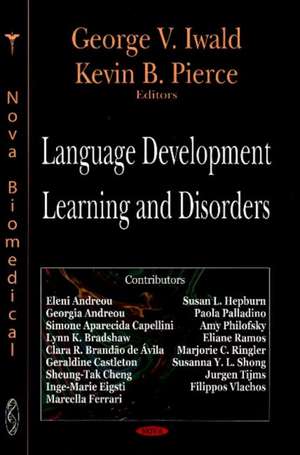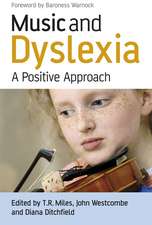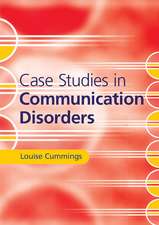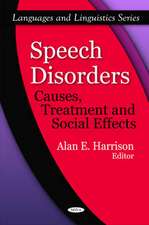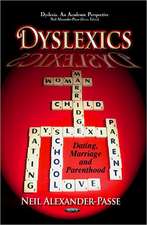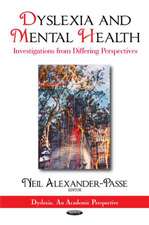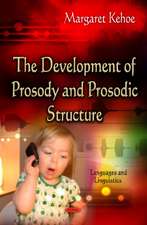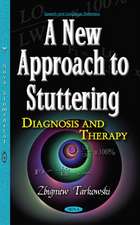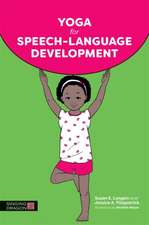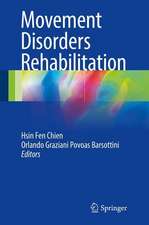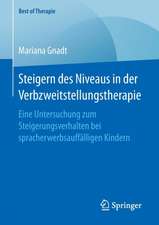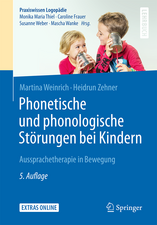Language Development, Learning and Disorders
Editat de George V. Iwald, Kevin B. Pierceen Limba Engleză Hardback – 31 mai 2008
Preț: 482.78 lei
Preț vechi: 653.92 lei
-26% Nou
Puncte Express: 724
Preț estimativ în valută:
92.38€ • 96.46$ • 76.28£
92.38€ • 96.46$ • 76.28£
Carte disponibilă
Livrare economică 25 martie-08 aprilie
Preluare comenzi: 021 569.72.76
Specificații
ISBN-13: 9781604563399
ISBN-10: 1604563397
Pagini: 202
Ilustrații: colour tables & charts
Dimensiuni: 188 x 263 x 21 mm
Greutate: 0.68 kg
Editura: Nova Science Publishers Inc
ISBN-10: 1604563397
Pagini: 202
Ilustrații: colour tables & charts
Dimensiuni: 188 x 263 x 21 mm
Greutate: 0.68 kg
Editura: Nova Science Publishers Inc
Cuprins
Preface; Efficacy of a Psycholinguistic Treatment of Dyslexia: External and Internal Validity; Language Profiles in Young Children with Fragile X Syndrome and Autism Symptoms; Language Assessment: A Review of Cross-Cultural Issues, and the Development of an Indigenous Tool for Hong Kong Infants and Toddlers; Foreign Language Learning: The Role of Phonological Memory; Child Maltreatment: Effects on Grammatical and Lexical Aspects of Language Acquisition; Speech and Language Assessment in Bilinguals; Research-Based Strategies for English Language Learners' Concept Acquisition; Individual Differences in Second Language Learning Among University Students; Putting Language, Literacy and Learning to Work: Exploring (E)Merging Discourses; Relation Between Oral and Written Language; Index.
